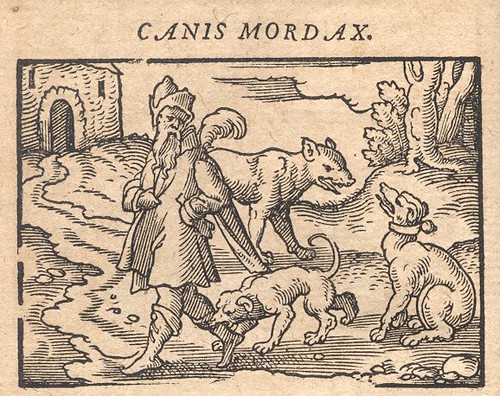HODIE (Roman Calendar): ante diem septimum Idus Apriles.
MYTHS and LEGENDS: The art image for today's legend shows The Abduction of Persephone; you can also see the legends for the current week listed together here.

TODAY'S MOTTOES and PROVERBS:
TINY MOTTOES: Today's tiny motto is: Semper fidelis (English: Always faithful - a.k.a. Semper Fi).
3-WORD PROVERBS: Today's 3-word verb-less proverb is Fames optimus coquus (English: Hunger is the best cook)
AUDIO PROVERBS: Today's audio Latin proverb is Est avis in dextra melior quam quattuor extra (English: A bird in the right hand is better than four outside). To read a brief essay about this proverb and to listen to the audio, visit the Latin Via Proverbs blog.
PUBLILIUS SYRUS: Today's proverb from Publilius Syrus is: Qui se ipse laudat, cito derisorem invenit (English: He who praises himself quickly finds a scoffer).
ERASMUS' ANIMALS: Today's animal proverb from Erasmus is Camelus saltat (English: The camel is dancing - and the camel is proverbially a clumsy dancer; from Adagia 2.7.66).
BREVISSIMA: The distich poster for today is Iudicium Populi. Click here for a full-sized view; the poem has a vocabulary list and an English translation, too.

And here are today's proverbial lolcats:


FABULAE FACILES: The fable from the Fabulae Faciles widget is Luna et Mater, the absurd little story of what happened when the moon wanted a new dress (this fable has a vocabulary list).
MILLE FABULAE: The fable from the Mille Fabulae et Una widget is Canis Mordax, the story of a dog who is both vicious and foolish.
Greek Bible Art - and Latin and English, too. Below is one of my Greek Bible Art graphics; for the individual Greek, Latin and English versions of the graphic, see the blog post: ἀπὸ τῶν παιδίων τῶν Εβραίων τοῦτο. De infantibus Hebraeorum est hic. This is one of the Hebrews' children.

